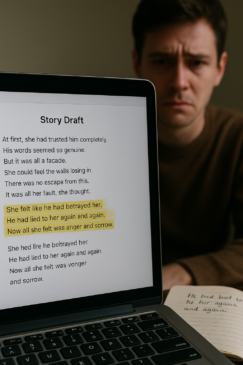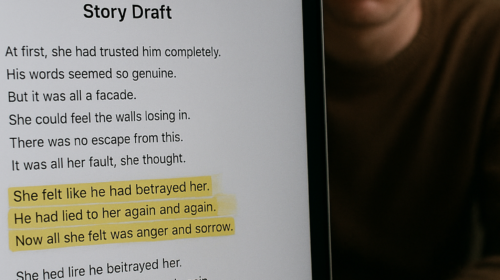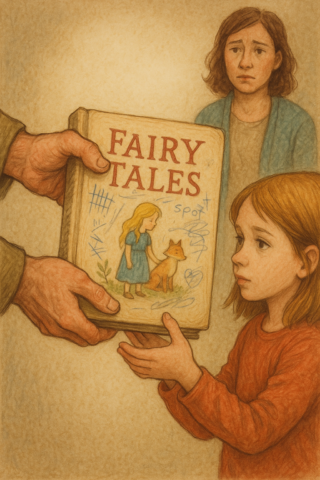Some wounds take years to close. Others reopen in a flash, with just a word or a memory. But nothing could have prepared me for the day I read a short story by my best friend, Harper—and recognized every detail as my own most private pain.
It started innocently enough: a group chat ping, a link, and the kind of excitement only friends can muster for each other’s creative dreams. “Read my new story!” Harper wrote. “I think you’ll love it. It’s getting published on a big website next week!”
I clicked the link, eager to support her. By the second paragraph, my hands were shaking.
When Fiction Hits Too Close to Home
The story was gripping. Beautiful, even. It centered on a young woman grappling with a traumatic experience—a betrayal by a trusted adult, the spiral into anxiety, the way her friendships changed as she tried to heal. The descriptions were hauntingly accurate. The events, the dialogue, even the small details—a chipped mug, a favorite book—matched my own life in ways only Harper could know.
She hadn’t just been inspired by my story. She had used it, almost verbatim, as the heart of her fiction.
The character had my scars, my nightmares, my secret history. But she had a different name, and the ending was different—tidier, less complicated, maybe more “marketable.” But the world she lived in was mine, and it felt as if Harper had taken something from me and claimed it as her own.
The Sting of Betrayal
At first, I thought I was overreacting. Writers pull from real life all the time, right? But the more I read, the more exposed I felt. Friends, coworkers, maybe even family could read this and recognize me behind the mask of fiction. Harper had been the first person I confided in—she’d cried with me, hugged me, promised to keep my pain safe.
I put my phone down, breathless. The secret I’d worked so hard to live with was out there, dressed up in metaphor and plot twists, for the world to analyze, judge, and consume.

Confrontation and Confusion
I called Harper that night, my voice trembling. “Did you base your story on me?”
She hesitated. “I… I was inspired by what you went through. But I changed things. I thought it would be okay if I didn’t use your name.”
“It’s not okay,” I said, fighting back tears. “You took my trauma and made it into entertainment. You didn’t even ask.”
She sounded genuinely surprised—and hurt. “I just wanted to tell a story that mattered. I didn’t think you’d mind.”
I tried to explain how powerless it felt, how seeing my life—my worst moments—fictionalized for strangers was a violation, no matter the intent. Harper apologized, but I could tell she still didn’t understand the depth of my pain.
The Fallout
In the days that followed, I wrestled with whether to demand the story be taken down. I weighed our years of friendship against this new, raw betrayal. I confided in a therapist, who helped me see that my reaction was valid, that boundaries matter even among the people we love most.
Harper and I grew distant. I needed space to heal—again. I wondered if I could ever trust her with my truth, or anyone else, for that matter.
What I Learned
Some stories are ours alone to tell. I learned that even the best intentions can cause real harm when boundaries aren’t respected. Just because a story is “fiction” doesn’t mean it isn’t real for the person who lived it.
I also learned that it’s okay to protect your narrative, to ask for respect, and to step away from relationships that don’t honor your privacy and healing.
Moving Forward
Healing from this hurt meant setting new boundaries—with Harper, with myself, with anyone who wanted to use my story without my permission. I started writing in my own journal again, reclaiming my words. I found a community of people who understood—who believed that trauma isn’t public property.
Maybe someday I’ll write my own story, on my own terms. For now, I choose silence, peace, and the power to say no.
Final Thought
If someone you trust turns your pain into their fiction, remember: your story is sacred, and your consent matters. You are allowed to draw lines, demand respect, and reclaim your voice—one page at a time.



